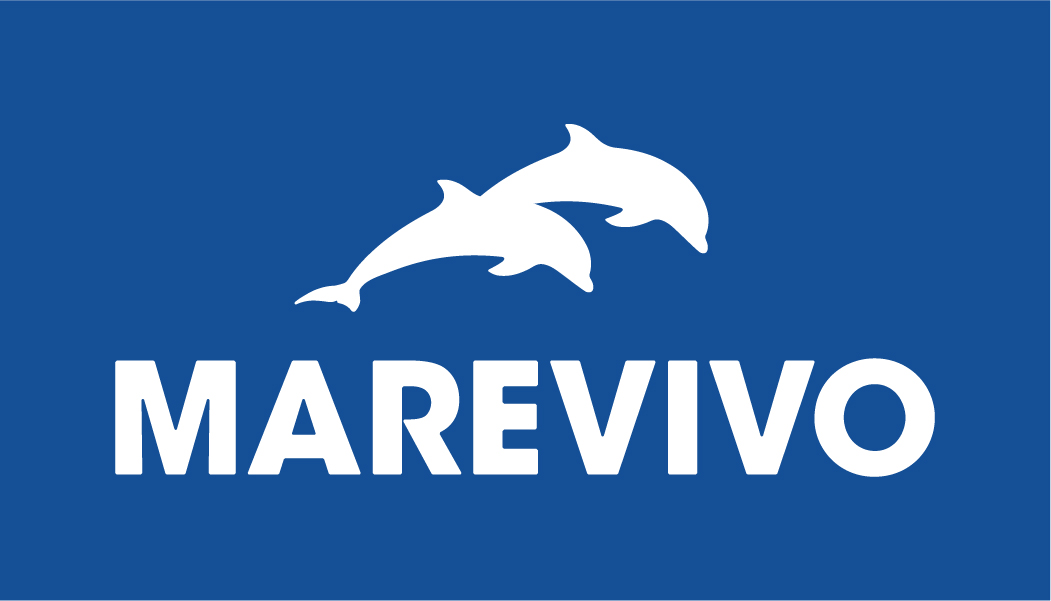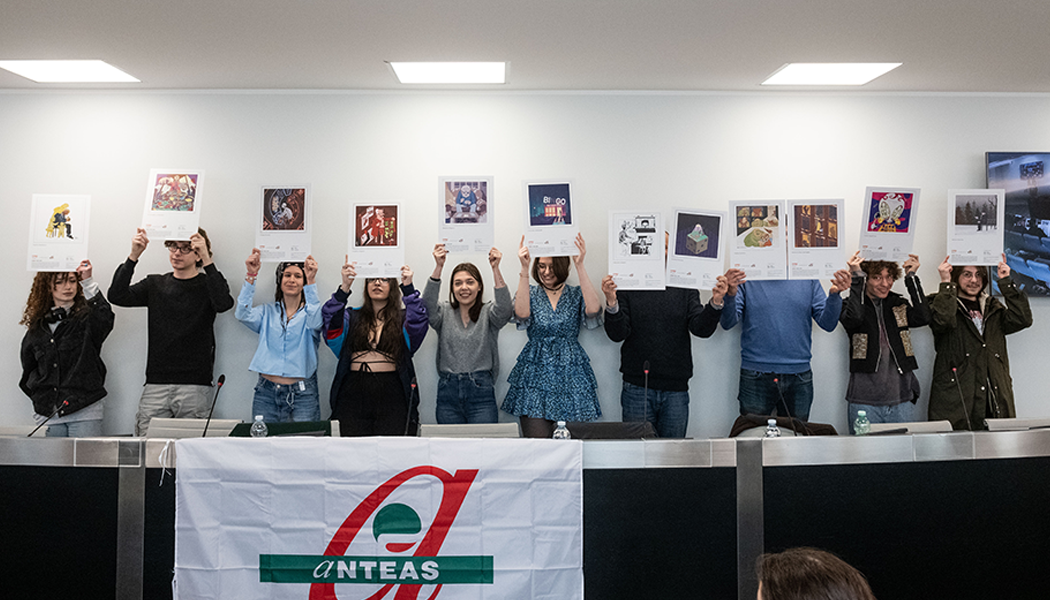The Italian Government has launched clear and precise restrictive measures to stem the spread of Coronavirus. Each individual, as a component of humanity, is required to observe these provisions, in the knowledge that compliance with the rules could result in the well-being of the people with whom you come into daily contact.
The entire RUFA community is working to make this step less complex, to meet the needs of students and to give form and substance to supplementary learning methodologies. The whole of this action is summarized in the hashtag #IORESTOACASA, including in this scenario a remodulation of one’s professional and study activity.
As provided by the Decree of the President of the Council of Ministers 09/03/2020, confirmed on 10/04/2020 all the Universities in Lazio, including the Academies of Fine Arts, have suspended the provision of frontal education until May 03. Obviously, all activities will be reorganized to provide the best tools to stem this temporary interruption of frontal lessons, including examination and degree sessions. RUFA intends to provide almost all the lessons on “e-learning” platforms. If this does not take place, all possible alternative solutions will be adopted.
Internships in external host companies/entities as well as practical exercises, such as the production of short films, will be suspended. Students who, before the entry into force of the Decree, have taken suitable material for filming are required to contact the cinema service via email to define the procedures for the return of technical equipment.
The library, laboratories, student classrooms, catering service and relaxation areas will remain closed as long as this legal obligation remains in force. All offices will continue to serve remotely, including the student secretary’s office which can be contacted by email. The orientation and counselling service will also take place online.
For Erasmus+ mobility of outgoing students and staff, the principle of “force majeure” can be applied: Erasmus+ activities can be cancelled, suspended or postponed. The concept of “force majeure” is defined as follows: any unforeseeable and exceptional situation or event, independent of the will of the parties, which prevents fulfilment of one or more obligations under the Convention, not attributable to the fault or negligence of either party.
RUFA complies with the provisions of the law currently in force: travel to return to one’s country of origin is allowed; new Erasmus+ mobility outgoing or incoming to Italy is not allowed.
RUFA invites foreign students currently present in Italy:
– to contact their home institutions and their embassies and consulates;
– to consult the indications provided by the Ministry of Foreign Affairs and International Cooperation in the dedicated web page.
All the innovations introduced will be published on the website Unirufa which becomes, on this particular subject, the official channel for the diffusion of news and information.
Director’s open letterFaq RUFA – Coronavirus
CORONAVIRUS: SITUATION AND SCENARIO
In Italy, in order to face the expansion of Coronavirus, both a surveillance network and a series of controls and screening have been activated under the coordination of a task force that depends on the Ministry of Health.
On March 9, 2020, the President of the Council of Ministers Giuseppe Conte signed the decree that indicates the measures to be taken to contain and combat the spread of the Covid-19 virus throughout the country. These provisions take effect from 10 March 2020 and are effective until next 3 April. On 11 March, the President of the Council of Ministers Giuseppe Conte signed a new decree making these measures even more restrictive. More specifically, they extend the effects already anticipated in the Dpcm of last 8 March, which, in turn, replaced the Dpcm of 1 and 4 March, and provide for new measures to contain the virus. On March 17 a new decree was signed that provides for the adoption of certain measures in favour of the University and the sector of higher artistic, musical and choreutic training. Immediately afterwards, the Ministry of Infrastructure and Transport, in agreement with the Ministry of Health, issued a decree that regulates the return of Italians from abroad: those who enter Italy, by plane, train, sea or road, even in the absence of symptoms, are obliged to immediately notify their entry into the country to the Prevention Department of the local health authority responsible for the territory. The person in question is subject to health surveillance and fiduciary isolation for 14 days. This measure, which also applies to Italian students in Erasmus, is valid until 25 March and serves to counter the further spread of the epidemic of new coronavirus.
On 22 March, the Presidency of the Council of Ministers issued a new decree indicating the sectors that must remain closed, including education, which can only continue in remote mode. Also as of March 22, an ordinance adopted jointly by the Ministry of Health and the Ministry of the Interior, which will remain effective until a new decree comes into force, prohibits all people from moving or moving by public or private transport to a municipality other than the one in which they are located, except for proven occupational needs, of absolute urgency, or for health reasons. This measure also applies to students.
The Council of Ministers, on 24 March 2020, approved a decree law introducing urgent measures to deal with the epidemiological emergency from COVID-19. The decree provides that, in order to contain and contrast the health risks and the spread of contagion, one or more of the measures provided for in the decree may be adopted, on specific parts of the national territory or on the whole of it, for predetermined periods of no more than thirty days, which may be modified until the end of the state of emergency established on 31 July. The application of the measures may be modulated upwards or downwards according to the epidemiological trend of the aforementioned virus, following the criteria of specific suitability and or principles of proportionality to the risk actually present.
On 28 March 2020, the President of the Council Giuseppe Conte and the Minister of Economy and Finance Roberto Gualtieri illustrated the support measures aimed at municipalities (cash advances) and the less well-off or in income crisis due to lack of work.
On 29 March 2020, the Higher Institute of Health with the publication of a note intended to clarify that at the moment there is no medicine that has as a therapeutic indication the prevention or treatment of Covid-19. The same Institute warns anyone to use “do-it-yourself” therapies: all medicines have specific therapeutic indications and side effects that cannot be evaluated by non-medical people.
On April 1, 2020, the Presidency of the Council of Ministers renewed, until April 13, the restrictive measures already set out in the decree of last March 24. The measures currently in force and which may be extended on the basis of needs provide for:
1) the restriction of the movement of persons, the absolute prohibition to leave their homes for persons in quarantine because they are infected and the precautionary quarantine for persons who have had close contact with infected persons;
2) the suspension of activities, the limitation of entry or the closure of facilities and spaces open to the public such as places of worship, museums, cinemas, theatres, gyms, sports centres, swimming pools, swimming centres, sports facilities, dance halls, discos, amusement arcades, betting and bingo halls, cultural centres, social centres, leisure centres, parks, playgrounds, urban streets;
3) the restriction, suspension or prohibition of play, recreation, sports and motor sports activities in the open air or in places open to the public, meetings, gatherings, congresses, events, initiatives or events of any kind;
4) the suspension of civil and religious ceremonies and the limitation or suspension of sporting events and competitions, even if private, and to regulate the way in which sports training is carried out in the same places;
5) the possibility of ordering or entrusting to the competent State and regional authorities the reduction, suspension or abolition of passenger and goods transport services or local public transport;
6) the suspension or closure of children’s education services, schools of all levels of education and higher education institutions;
the limitation or suspension of the activities of public administrations, without prejudice to the provision of essential services and public utilities;
7) the limitation, suspension or closure of the activities of providing or consuming drinks and food on the spot, of trade fairs, markets and retail activities, ensuring in any case adequate availability of food and basic necessities to be carried out in such a way as to avoid a crowding of people;
8) the restriction or suspension of all other business activities or professional and self-employed activities;
9) the possibility of applying the flexible working method to any employment relationship, even by way of derogation from the rules in force;
10) the obligation that the permitted activities must be carried out after taking appropriate measures to avoid groups of people, to guarantee respect for the interpersonal safety distance and, for public services, where it is not possible to respect this interpersonal distance, the provision of anti-accounting safety protocols, with the adoption of individual protection instruments.
The decree also provides that:
1) the Minister of Health may introduce containment measures with its own ordinances; 2) for specific situations of aggravated health risk, the Presidents of the regions may issue ordinances containing further restrictions, exclusively in the areas of its competence.
On 6 April 2020, the Council of Ministers approved a decree law introducing urgent measures regarding access to credit and deferral of obligations for companies, as well as special powers in areas of strategic importance and justice. The decree intervenes in support of companies in difficulty with specific measures in five main areas: access to credit, support for liquidity, export, internationalisation and investments; measures to ensure the continuity of companies; strengthening special powers in sectors of strategic importance and financial transparency obligations; tax and accounting measures; and further provisions. On the proposal of the Minister of Education and the Minister of University and Research, a decree law was passed introducing urgent measures for the regular conclusion and orderly start of the school year and the holding of State examinations. The rules regulate, with temporally effective instruments, all the complex operations relating to the closure of the 2019/2020 school year and the start of the 2020/2021 school year, taking into account the situation determined following the health emergency and the possible extension of the period of suspension of teaching activities carried out “in attendance” beyond 18 May 2020. In relation to the critical issues that have emerged in the continuation of practical training activities or internships in universities, exceptional measures are adopted for the conduct of State examinations for the exercise of professions, for which the internship activity in question is a condition of admission.
On April 10, 2020, Prime Minister Giuseppe Conte signed the Decree of the Presidency of the Council of Ministers with which the restrictive measures adopted so far for the containment of the epidemiological emergency by Covid-19 are extended until May 3. With the new Dpcm, however, from April 14, will be allowed to open stationery stores, bookstores and clothing stores for children and babies and are included among the allowed production activities forestry and wood industry. In the same measure, express reference is made to the so-called “Phase 2”. The restart of the production system will have to take place through an articulated programme based on two pillars: the establishment of an expert working group and the workplace safety protocol. The Committee, led by Vittorio Colao and composed of experts in economic and social matters, will have the task, together with the technical-scientific Committee, of elaborating the necessary measures for a gradual recovery in the various sectors of social, economic and productive activities, also through the identification of new organizational and relational models, which take into account the needs of containment and emergency prevention.
On 26 April 2020, the Presidency of the Council of Ministers defined the lines of passage from the emergency phase (Phase 1) to that of cohabitation with Covid-19 (Phase 2). Many innovations introduced and in force since May 4: the possibility of visits to their relatives who live in the same region, the reopening of parks and public gardens (in compliance with health regulations and avoiding the assemblages), becomes mandatory the use of the mask in closed places accessible to the public (such as public transport and shops). The new Dpcm also establishes the obligation to remain inside one’s own home for all those who have symptoms related to respiratory syndromes and a body temperature above 37.5 degrees. Also from 4 May, you can return to practice sports, individually, even away from home. Another important change concerns the possibility to carry out funeral celebrations, with a maximum number of participants fixed at 15 people, wearing protective masks and possibly outdoors. Takeaway catering for bars, restaurants and other similar establishments is permitted, in addition to the already permitted home delivery activity. Various manufacturing and industrial activities, the activities for the manufacturing and construction sectors, together with all the wholesale activities related to them, with the obligation to comply with the rules in force on safety at work, will start again.
Furthermore, Italy blocked all flights to and from China for 90 days, in addition to those coming from Wuhan, which had already been suspended by the Chinese authorities, on 30 January last, with an Order of the Minister of Health. On January 31, 2020, the Italian Government declared a state of emergency, allocated the first funds and appointed Civil Protection Chief Angelo Borrelli as Special Commissioner for Emergency.
On 11 March 2020 the Director-General of the World Health Organization Tedros Adhanom Ghebreyesus pointed out that the number of cases of COVID-19 outside China has increased 13 times and the number of countries affected has tripled: in light of these assessments the “COVID-19 may be characterized as a pandemic”. The use of the term pandemic does not change the assessment of the threat posed by this virus and does not change the efforts that communities are called upon to make to delimit the contagion.
Faq Phase 2Faq CoronavirusFaq #IORESTOACASA DecreeCoronavirus and nutrition decalogue





